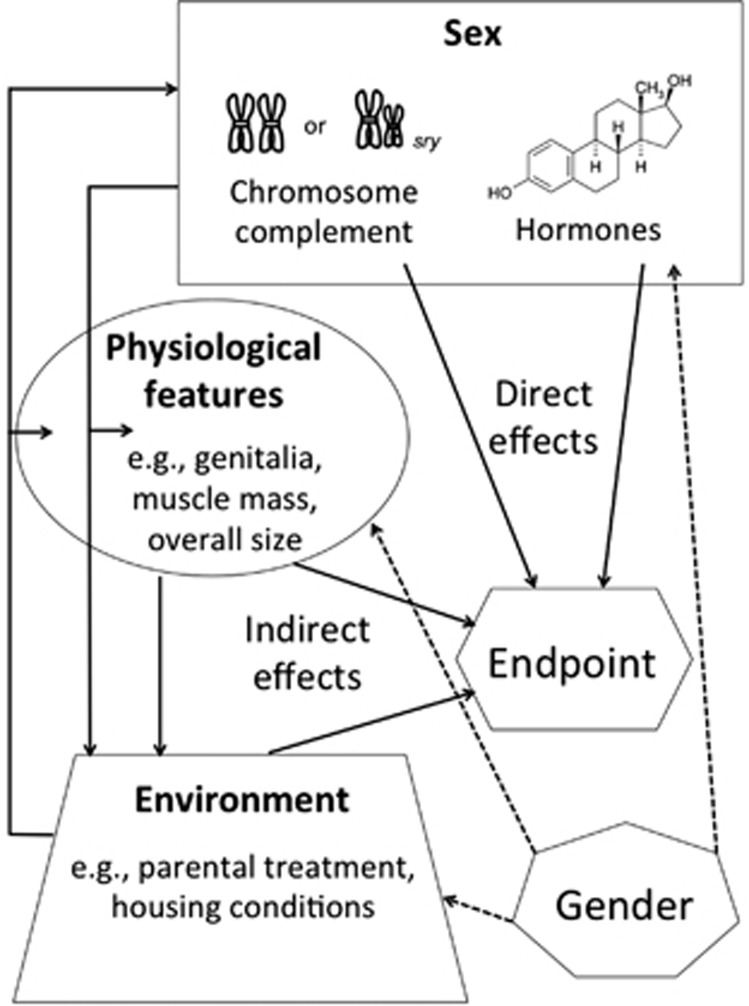Figure 2.
Direct and indirect effects of sex. The effects of sex on brain and behavior can be direct (ie, hormones and chromosome complement) or indirect, through sex differences in other physiological factors or in environmental factors. The direct effects of sex chromosomes and sex hormones may be synergetic or antagonistic. The indirect effects may exaggerate the direct effects of hormones or chromosome complement or act independently of other influences of sex to modulate brain and behavior. The physiological and the environmental factors through which sex may indirectly affect brain and behavior may themselves be a direct consequence of sex (eg, muscle mass, antlers, and parental behavior), or, in humans (dashed lines), may also be a consequence of gender (eg, sex roles and socioeconomic status). In addition to influencing physiological and environmental factors, components of gender may also affect components of sex itself (eg, level of testosterone).

